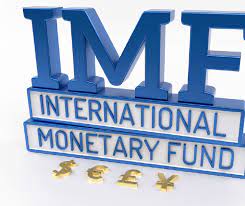The International Monetary Fund (IMF) on Tuesday approved one-billion dollars loan to Uganda to finance its response to the COVID-19 crisis over the next three years.
The international financing institution in a statement posted on its website said the pandemic had caused economic and social strife in the East African country leading to a reversal of anti-poverty gains, deterioration of fiscal balances, and put pressure on external buffers.
The institution said the approval enables the immediate disbursement of about 258 million dollars to start on the response and help sustain a post-crisis inclusive recovery.
“Reforms will focus on creating fiscal space for priority social spending, preserving debt sustainability, strengthening governance and enhancing the monetary and financial sector framework,” IMF said in the statement.
IMF said some sectors of the economy were experiencing mild recovery with economic growth in the financial year of 2021/22, which starts on July 1, expected to reach 4.3 per cent before returning to pre-pandemic rates of 6 to 7 per cent in the medium term.
“The outlook remains highly uncertain with risks tilted to the downside including from a resurgence of tighter containment measures linked to higher COVID-19 positivity rates,’’ it said.
The country is currently under a partial lockdown that was instituted to contain the rapid spread of the pandemic.
Economic experts warned that stringent containment measures were likely to negatively impact economic recovery efforts.
The new IMF financing comes over a year after the institution through an emergency fund loaned Uganda 491.5 million dollars to help contain the effects of the pandemic.

